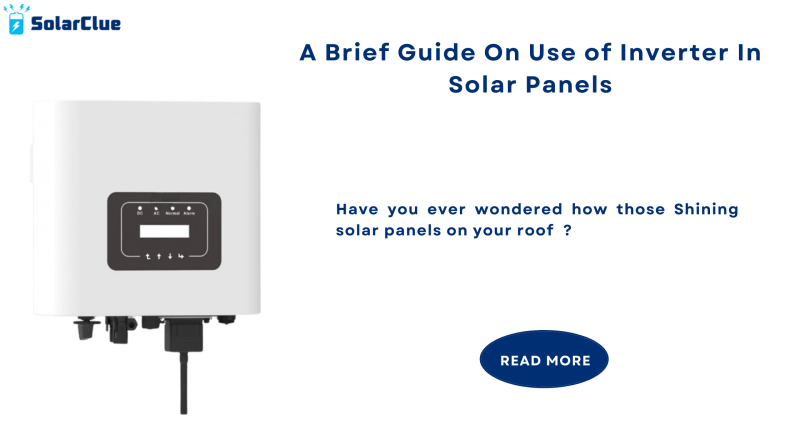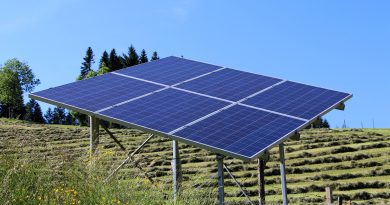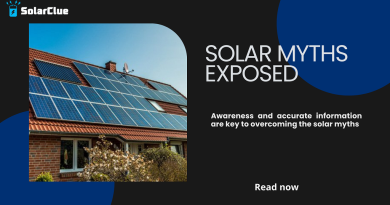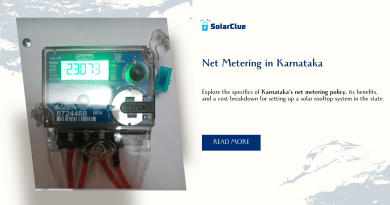A Brief Guide On Use of Inverter In Solar Panels
Have you ever wondered how those Shining solar panels on your roof or in any solar farms convert the sun’s energy into usable electricity for your home or office? Solar panels, often installed on rooftops or in open spaces, capture sunlight and convert it into electricity. However, this electricity isn’t in the form we typically use at home. This is where inverters come into play .In this blog we are going to talk about Use of inverter with Solar panels and there importance & benefits.
Table of Contents
What is an inverter?
An inverter is an electrical device that converts the direct current (DC) electricity generated by solar panels into alternating current (AC) electricity, which is the type of power used by most household appliances and electrical systems. Without an inverter, the DC electricity produced by solar panels would be unusable for most applications.
How Inverters Work ?
When sunlight hits the solar panels, they generate DC electricity, which is subsequently fed into the inverter. The inverter processes this electricity, converting it into AC electricity, which can power household appliances or be sent back to the grid. The quality of the inverter determines the efficiency of this conversion process.
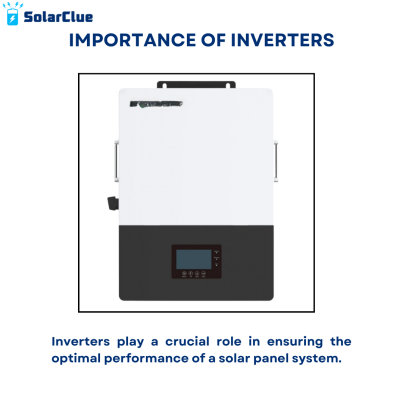
Importance of Inverters:
Inverters play a crucial role in ensuring the optimal performance of a solar panel system. They not only convert DC to AC electricity but also monitor the system’s performance, ensuring safety and efficiency. Additionally, advanced inverters offer features like remote monitoring; thus, users can track their system’s performance and troubleshoot issues easily.
Benefits of Inverters in Solar Panels:
1.Compatibility: Inverters ensure that the electricity generated by solar panels is compatible with the electrical systems in homes and buildings. They convert the direct current (DC) produced by solar panels into alternating current (AC), which is what most appliances and devices use.
2.Usable Power: Without inverters, the electricity generated by solar panels would be in DC form, which is not directly usable by household appliances. Inverters make this power usable, allowing you to power your lights, TV, refrigerator, and other devices with solar energy.
3.Grid Connection: Inverters enable solar panel systems to be connected to the electrical grid. This implies that you can send excess electricity generated by the solar panels back into the grid, earning credits or reducing your electricity bills through net metering programs.
4.Energy Independence: By using inverters with solar panels, you can reduce your dependence on traditional fossil fuel-based electricity sources. This helps to mitigate the effects of climate change by reducing greenhouse gas emissions associated with electricity generation.
5.Cost Savings :In the long run, using inverters with solar panels can lead to significant cost savings on electricity bills. Once installed, solar panel systems with inverters generate free electricity from sunlight, thereby significantly reducing or eliminating the need to purchase electricity from the grid.
6.Remote Monitoring: Many modern inverters come with remote monitoring capabilities, allowing homeowners to monitor the performance of their solar panel systems from anywhere using a smartphone or computer. This helps in detecting and resolving any issues promptly, ensuring optimal system performance.
7.Enhanced Efficiency: Advanced inverters often include features such as maximum power point tracking (MPPT), which optimizes the performance of solar panels by adjusting the voltage and current to maximize power output. This boosts the overall efficiency of the solar panel system, thereby maximizing energy production to its fullest extent.
8.Reliability: Inverters are designed to be reliable and durable, This enhances the overall efficiency of the solar panel system, thereby maximizing energy production .That your solar panel system operates smoothly for years . Most inverters offer warranties and withstand harsh weather conditions, giving homeowners investing in solar energy peace of mind.
Conclusion:
So, there you have it – a simple guide to using inverters with solar panels. Next time you look up at your roof and see those shiny solar panels, you’ll know that there’s a trusty inverter working away to turn sunlight into power for your home. It’s a small box with a big job, making solar energy accessible and efficient for everyone.
Visit SolarClue® to see the best Solar Inverter. SolarClue® actively sells solar energy products at discounts of up to 50% on its online marketplace.
Frequently Asked Questions :
1.What is the purpose of an inverter?
An inverter transforms the DC electricity from sources such as batteries or fuel cells into AC electricity.
2.What is the best use of inverter?
You can use inverter for electric lights, kitchen appliances, microwaves, power tools, TVs, radios, computers etc.
3.How to use an inverter at home?
Simply connect the inverter to a battery; thereafter, plug your AC devices into the inverter. This setup provides portable power whenever and wherever you need it, ensuring convenience and flexibility.
4.How do inverters work with solar panels?
The solar panels capture DC electricity, and the solar inverter converts it into AC, which electrical circuits and appliances need.
5.Can a solar inverter work without a battery?
Yes, if you are connected to an electrical grid, you can use solar panels and inverters without battery storage.

